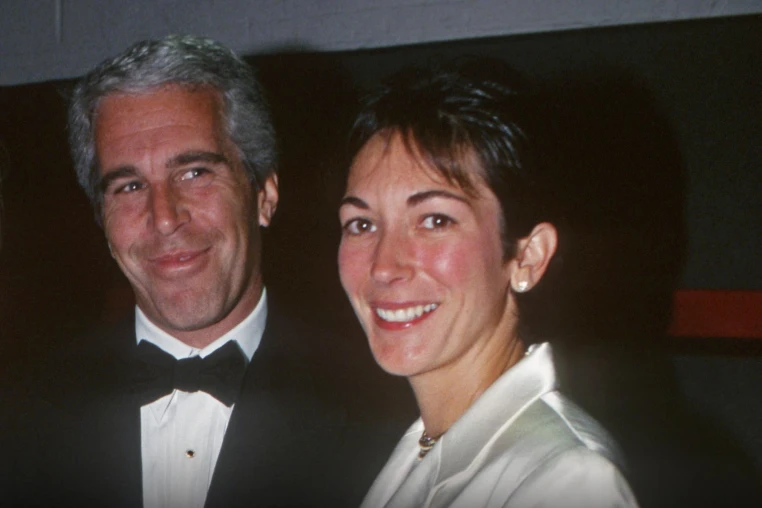Maxwell’s Credibility at Center of DOJ Inquiry into Epstein Network
By Lisa F. Keith

Ghislaine Maxwell, the one-time socialite and convicted accomplice of Jeffrey Epstein, has emerged as a pivotal, yet controversial, figure in ongoing efforts to fully unravel the financier’s criminal network. In recent weeks Deputy Attorney General Todd Blanche conducted a multi‑hour interview with Maxwell at the federal prison in Tallahassee, marking the Justice Department’s first formal engagement with her since her 2021 conviction. According to her attorney, David Markus, Maxwell responded to every question “truthfully, honestly and to the best of her ability,” without invoking privilege or refusing to answer :.Maxwell is serving a 20‑year federal sentence for sex trafficking and conspiracy related to Epstein’s recruitment of underage girls. Since her conviction—one of the few persons prosecuted in connection with Epstein—she has maintained her innocence on broader allegations and is currently appealing her case to the U.S. Supreme Court. Her family’s legal team argues she should have been protected under a prior non-prosecution agreement tied to Epstein, which could, they claim, invalidate key aspects of her conviction :.The Department of Justice’s move to interview Maxwell comes amid escalating demands from part of President Trump’s political base—and from several Republican lawmakers—for greater transparency regarding the Epstein files. Many supporters had expected disclosures of a so‑called “client list” naming high-profile associates. However, on July 7 the DOJ issued a memo declaring that no such evidence exists, and that Epstein had died by suicide without implicating other parties. The agency’s seeming reversal has fueled suspicion and intensified calls for internal review :.Critics—including survivors and prosecutors—warn against placing undue trust in Maxwell’s potential testimony. Survivors such as Teresa Helm, and attorneys like Bradley Edwards, emphasize Maxwell’s prior record of dishonesty, including lying under oath about critical matters like her assets and prison conditions. Prosecutors’ pre-sentencing reports described Maxwell as someone who “lies when it suits her,” including exaggerating physical and emotional hardship while incarcerated—often to elicit public sympathy. These patterns raise serious doubts about her credibility as a witness, especially given the high stakes involved :.Despite doubts, Maxwell remains one of the last living individuals with direct access to Epstein’s inner circle. Her involvement in recruiting underage victims—including Virginia Giuffre, who recounted being drawn into Epstein’s orbit via Maxwell—positions her as potentially able to confirm or refute persistent allegations involving other public figures and previously sealed files :.The interview has also triggered political turbulence. Republicans in Congress—including Speaker Mike Johnson and House Oversight Committee leaders—are pressing Maxwell to appear before lawmakers in August. A subpoena has already been issued, though committee leaders postponed votes on releasing sealed grand jury testimony, citing legal constraints and judicial oversight requirements. DOJ officials insist they will provide updates “at the appropriate time” and reaffirm that no individual is above the law if credible allegations arise :.Meanwhile, the Trump administration’s involvement—with Blanche, formerly Trump’s personal lawyer, leading the interview—has drawn sharp criticism from progressive lawmakers. Senator Chuck Schumer called the proceedings a “corrupt deal,” with concerns that Maxwell might strike a quid pro quo arrangement aimed at exonerating or politically shielding associates of Epstein, including President Trump. Maxwell’s lawyer, meanwhile, expressed gratitude to the administration for allowing her to tell her story, though he emphasized that no promises of leniency have been extended :.The broader implications are profound. For the DOJ, Maxwell’s statements may raise pathways to unresolved leads or evidence related to Epstein’s network—but only if corroborated independently. For survivors and watchdogs, the risk of manipulation looms large: a learned pattern of self-serving testimony could reinforce conspiracy theories and obscure hard truths. Legal observers note that forging any official deal based solely on Maxwell’s account would be fraught without physical or documentary evidence, particularly given her history of deception documented in court records :.Institutional critics also question whether DOJ’s shift marks a strategic response to political pressure, potentially undermining prosecutorial discretion. Attorneys general and intelligence courts remain hesitant to release grand jury materials related to Epstein, citing confidentiality and lack of legal authorization. Nonetheless, a growing faction within Congress and among Epstein survivors continues pushing for selective transparency, seeking to compel DOJ to revisit decisions from the prior investigation—particularly around alleged oversight failures and uninvestigated relationships with the powerful elites Epstein once cultivated :.As Maxwell’s appeal moves forward, her case may rest on whether she can credibly supply new evidence or explanations that withstand judicial and public scrutiny. Her history of privileged life, evasive testimony, and legal maneuvering cast a long shadow over her potential role in shaping narrative. Survivors and legal experts caution that any emerging story must be cross-examined diligently to avoid misuse of her testimony—whether for legal exoneration or political reinvention.Ultimately, Maxwell’s credibility—or lack thereof—remains the central unresolved axis of the Epstein saga. She may hold factual pieces of a larger puzzle, but without corroboration, her value is uncertain at best and potentially damaging at worst. Whether the DOJ, Congress, and the public can separate fact from manipulation will determine if new revelations outpace old disappointment.